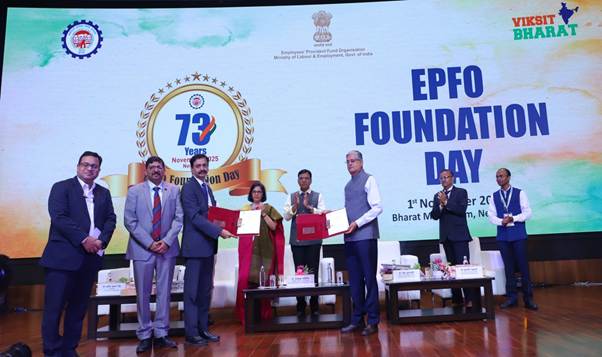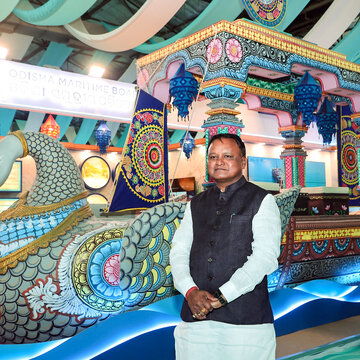The India Post Payments Bank has signed an MoU (Memorandum of Understanding) with the Employees' Provident Fund Organisation to provide doorstep (Digital Life Certificate) DLC services to EPFO pensioners, aiming to improve the ease of living for pensioners.
The agreement, signed on November 3, 2025, during the 73rd Foundation Day of EPFO, will leverage the last-mile connection of IPPB (India Post Payments Bank) for the benefit of millions of pensioners under the Employees' Pension Scheme, 1995 (EPS-95).
Under the new partnership, pensioners will not need to visit bank branches or EPFO offices personally to submit their annual life certificate, which is a mandatory process for continued drawing of pension. Instead, they can request the service at home.
The service shall be delivered by a vast workforce of more than 3,00,000 postmen and Gramin Dak Sevaks (GDS) of IPPB. These postal service providers are equipped with smartphones and biometric devices to carry out the verification process in a purely digital manner at the pensioner’s doorstep using Aadhaar-based face authentication or fingerprint scanning.
Most importantly, this service will be totally free for all EPFO pensioners, as the entire cost of issuing the Digital Life Certificate will be carried by the EPFO.
The MoU was exchanged between Mr. R Viswesvaran, MD & CEO of IPPB, and Mr. Ramesh Krishnamurthi, Central Provident Fund Commissioner (CPFC) of EPFO, in the presence of Union Minister for Labour & Employment, Dr. Mansukh Mandaviya.
Shri R Viswesvaran, MD & CEO, IPPB, said, “This partnership with EPFO reinforces IPPB’s mission to bring essential financial and citizen services to every doorstep in India. With our technology-enabled postal network and trusted last-mile reach, EPFO pensioners—especially in rural and semi-urban areas—will now be able to complete their life certificate submission seamlessly, with dignity and convenience. The initiative aligns with the Government of India’s ‘Digital India’ and ‘Ease of Living’ vision, harnessing technology and postal infrastructure to ensure inclusive service delivery for senior citizens and pensioners,” as cited on Press Information Bureau.











